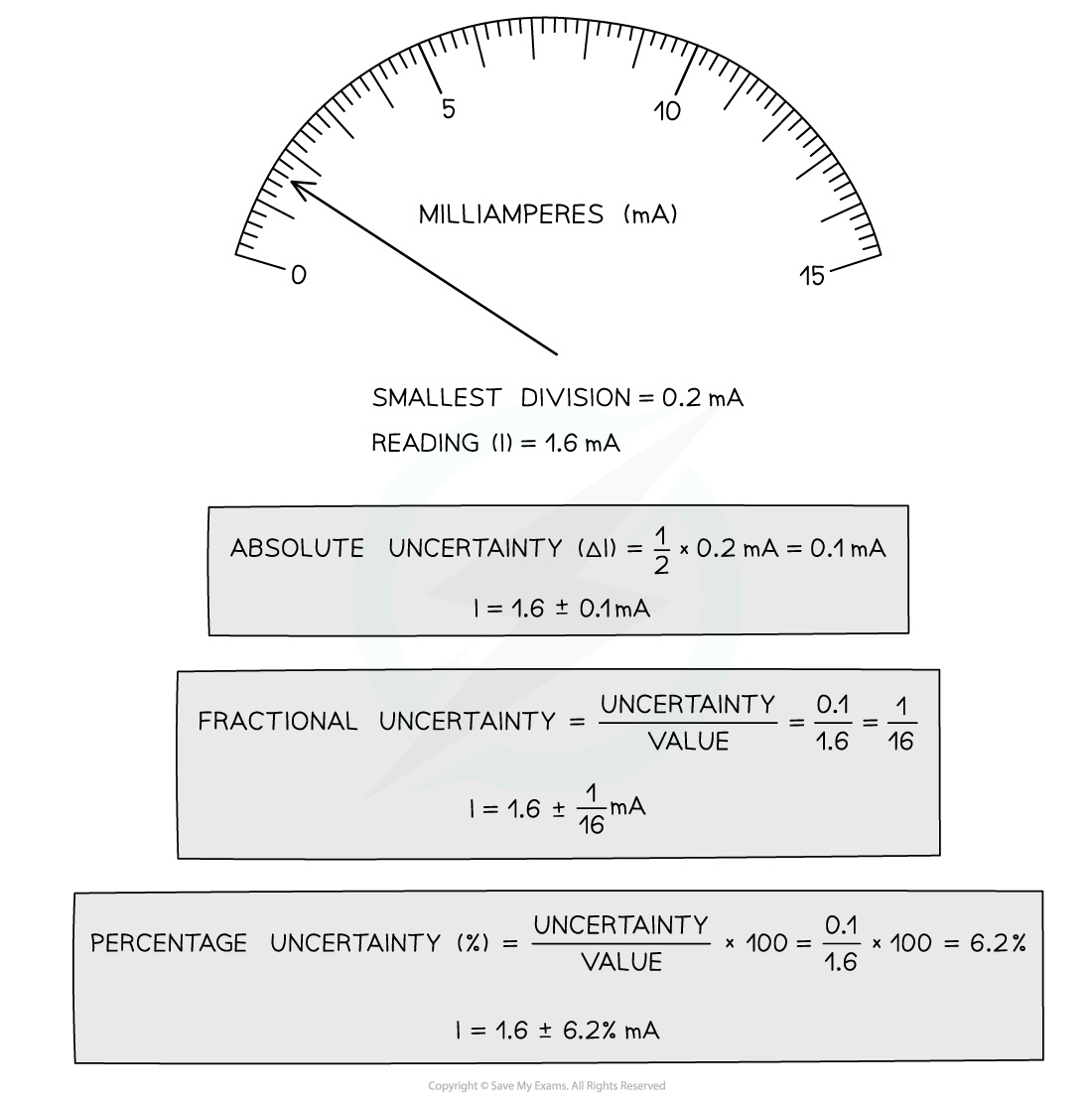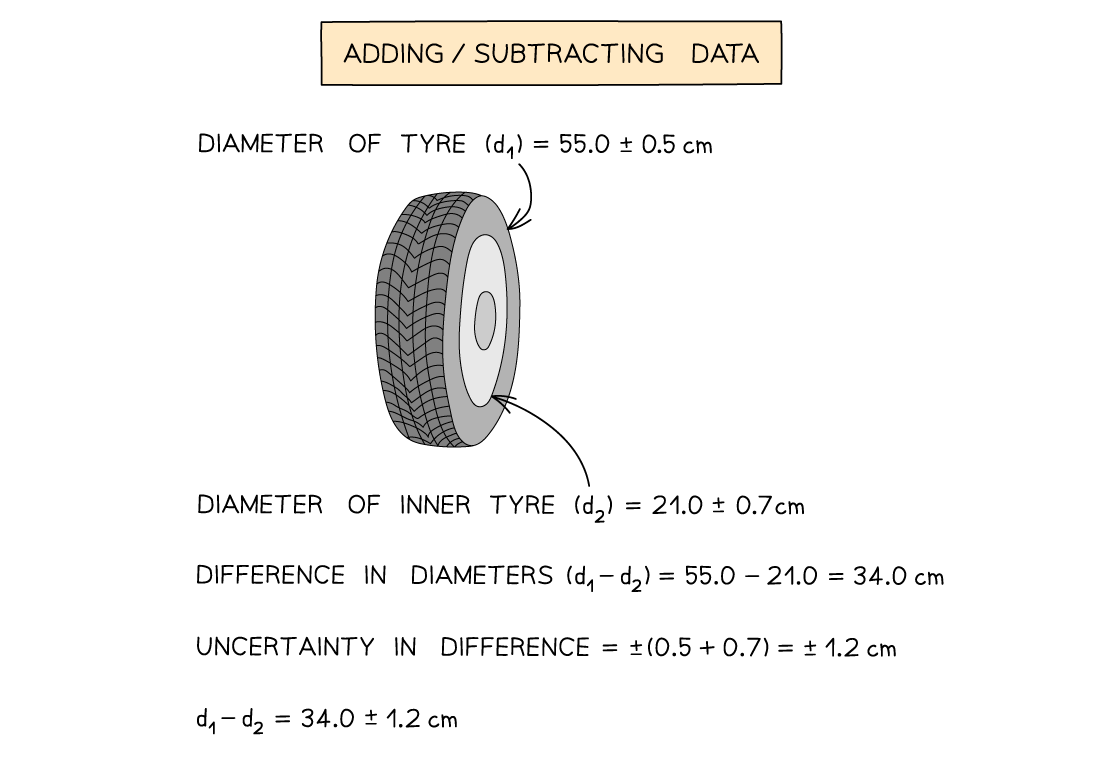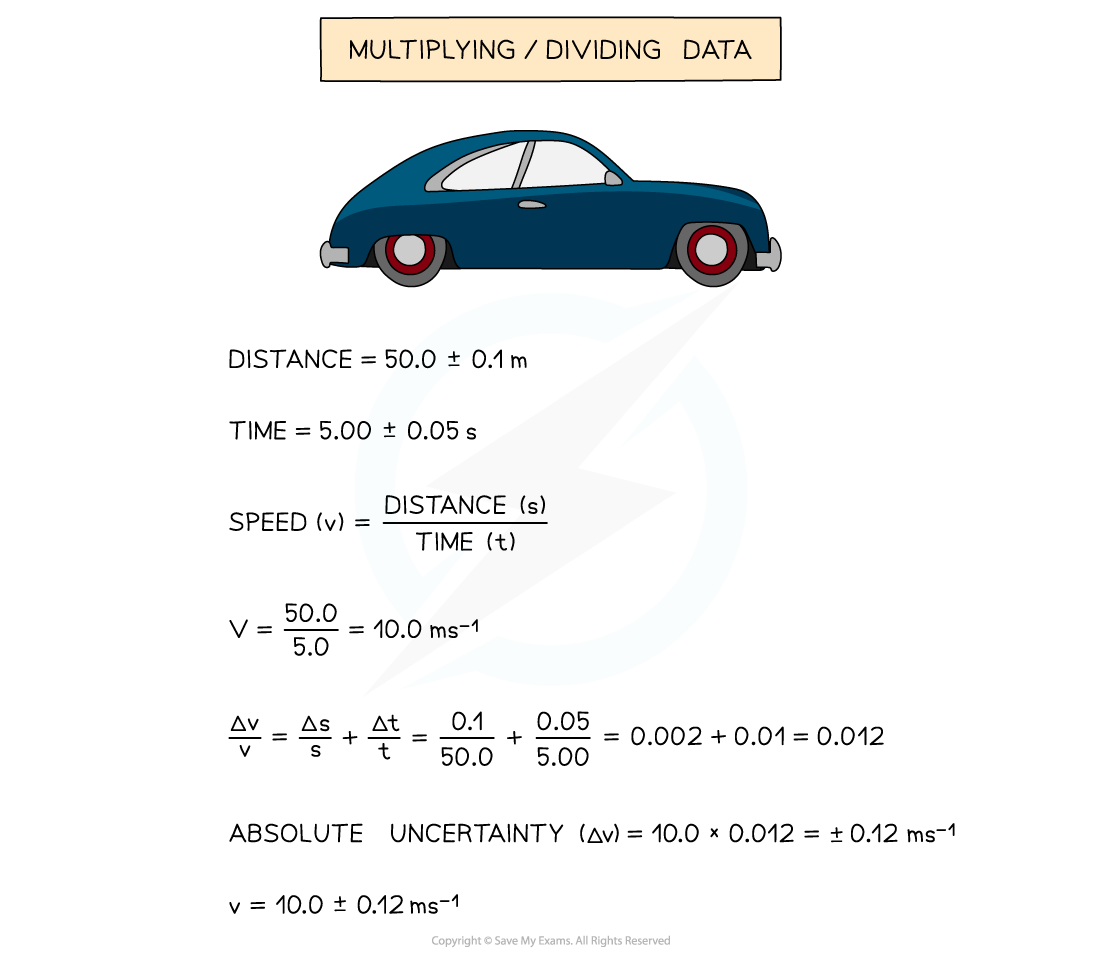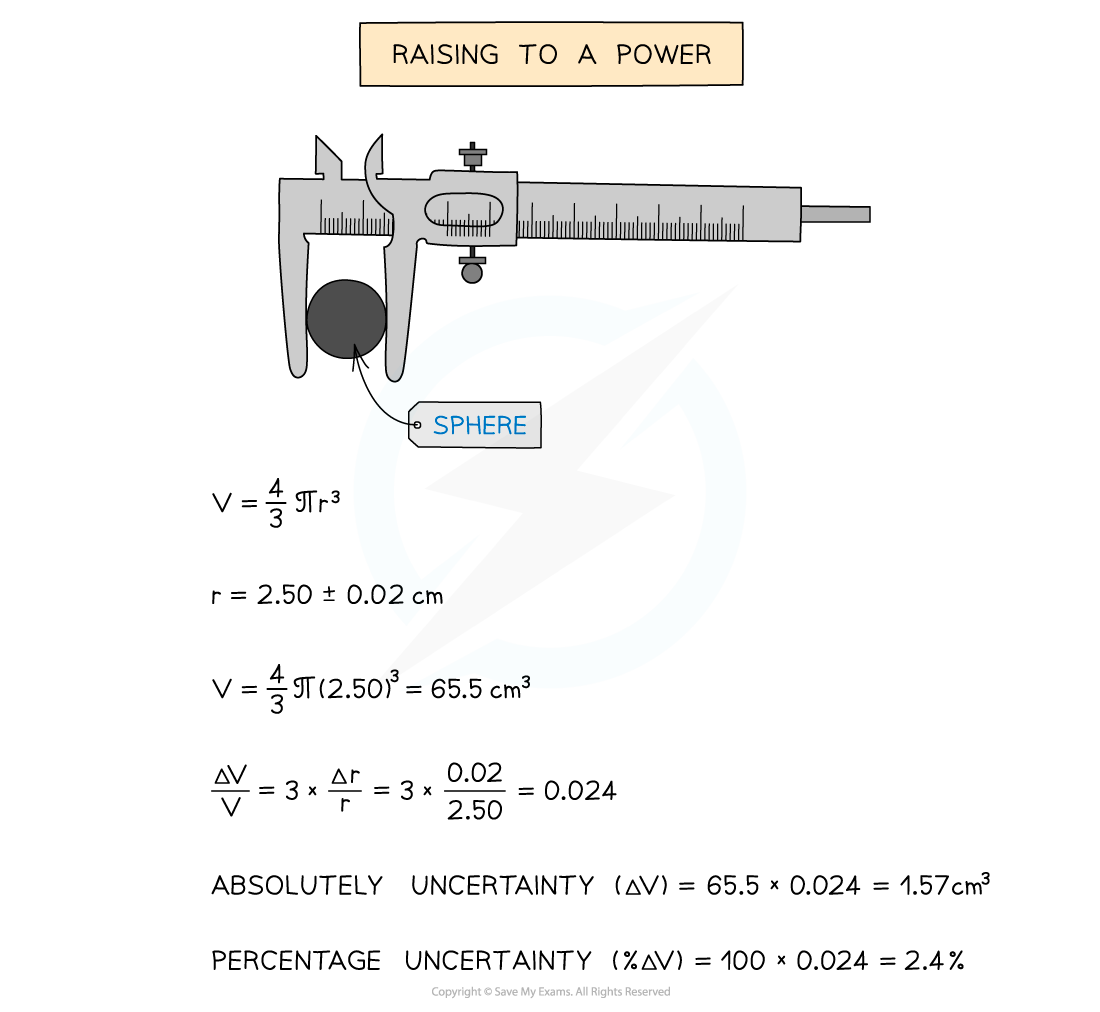Uncertainties (Edexcel International AS Physics): Revision Note
Exam code: XPH11
Uncertainties
Uncertainties can be represented in a number of ways:
Absolute Uncertainty: where uncertainty is given as a fixed quantity
Fractional Uncertainty: where uncertainty is given as a fraction of the measurement
Percentage Uncertainty: where uncertainty is given as a percentage of the measurement
Percentage uncertainty is defined by the equation:
Percentage uncertainty = × 100 %
To find uncertainties in different situations:
The uncertainty in a reading: ± half the smallest division
The uncertainty in a measurement: at least ±1 smallest division
The uncertainty in repeated data (e.g. the mean): half the range i.e. ± ½ (largest - smallest value)
The uncertainty in digital readings: ± the last significant digit unless otherwise quoted

How to calculate absolute, fractional and percentage uncertainty
Always make sure your absolute or percentage uncertainty is to the same number of significant figures as the reading
Combining Uncertainties
When combining uncertainties, the rules are as follows:
Adding / Subtracting Data
Add together the absolute uncertainties

Multiplying / Dividing Data
Add the percentage or fractional uncertainties

Raising to a Power
Multiply the percentage uncertainty by the power

Examiner Tips and Tricks
Remember:
Absolute uncertainties have the same units as the quantity
Percentage uncertainties have no units
The uncertainty in numbers and constants, such as π, is taken to be zero
In Edexcel International A level, the uncertainty should be stated to at least one few significant figures than the data but no more than the significant figures of the data.
For example, the uncertainty of a value of 12.0 which is calculated to be 1.204 can be stated as 12.0 ± 1.2 or 12.0 ± 1.20.

Unlock more, it's free!
Was this revision note helpful?
